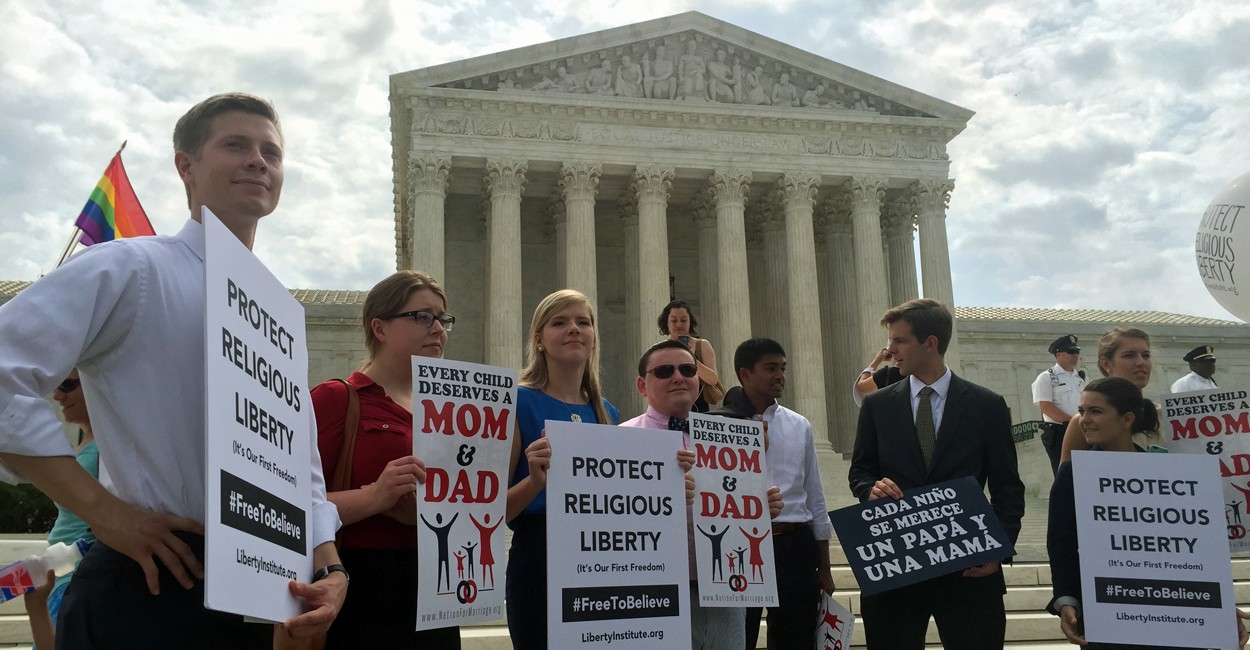 ...
...
In the wake of Friday’s 5-4 decision by the Supreme Court in the marriage case, Obergefell v. Hodges, many of the millions of Americans who voted to define marriage as an exclusively male-female institution in their state constitutions will be wondering: What does this mean for me?
Congress must move swiftly to pass the First Amendment Defense Act.
If five judges on the Supreme Court have pronounced, in a breathtaking presumption of power, that all 50 states must redefine marriage, what does that mean for the countless institutions within our civil society—churches and synagogues, charities and adoption agencies, counseling services and religiously affiliated schools—that are made up of American citizens who believe marriage is the union of one man and one woman?
Will federal government agencies follow the heavy-handed approach taken by the present majority of Supreme Court justices—say, by revoking the non-profit, tax-exempt status of faith-based schools that continue to operate on the basis of their religious beliefs about marriage?
Nowhere in the majority’s 28-page opinion will you find a reliable answer to these questions. In his dissent, Chief Justice John Roberts explains why.
“Federal courts are blunt instruments when it comes to creating rights,” Roberts writes, because “they do not have the flexibility of legislatures to address concerns of parties not before the court or to anticipate problems that may arise from the exercise of a new right.”
It’s true that Justice Anthony Kennedy, writing for the majority, acknowledges—as if in passing—that “The First Amendment ensures that religious organizations and persons are given proper protection as they seek to teach the principles that are so fulfilling and so central to their lives and faiths,” including their conviction that marriage is the union between one man and one woman.




